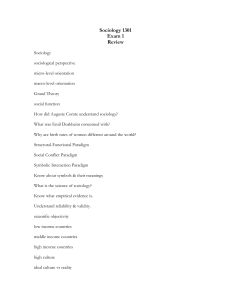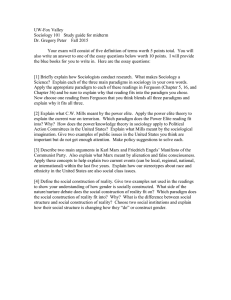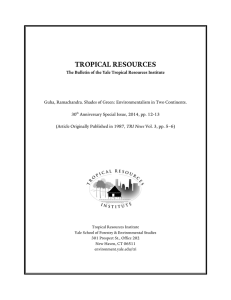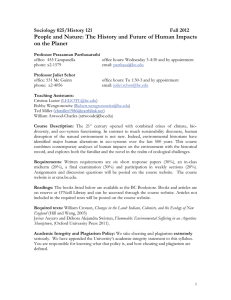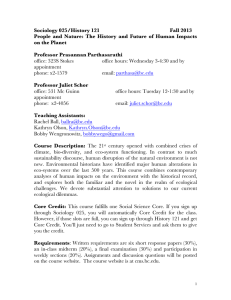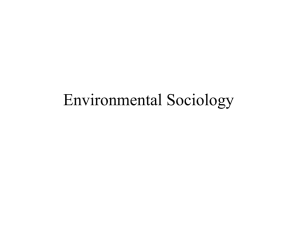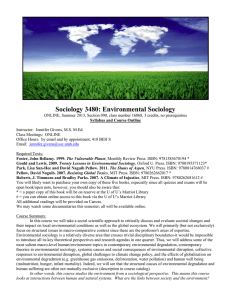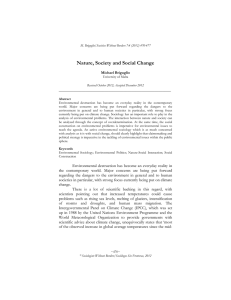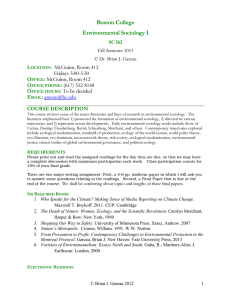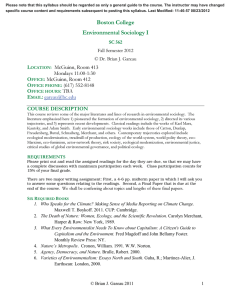The Social Construction of Nature - Environment
advertisement
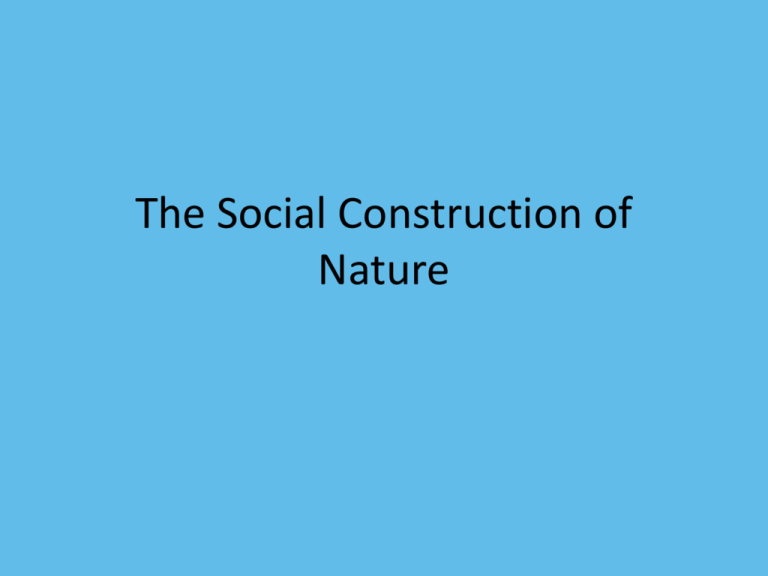
The Social Construction of Nature Environmental Sociology • Activities may include the study of … – Environment movement, public opinion, natural resource uses, social impacts of technology, inequality and environmental justice, constructions of nature and gender, the economics and politics of environmental policy, sustainable community design, or particular issues that dealt with climate change, deforestation, population growth, …. Environmental Sociology • The job of theory in Environmental Sociology is to make the social structure of every day life visible—that is, to identify the stable, persistent, often hidden patterns of social relationships that become established over time. • Two way process … illuminates social and environmental connections that are not immediately obvious. Social Structure • The invisible “strings” that link individuals to social groups and to the environment in a patterned way. • Why are these relationships so invisible in the first place? – Some are taken for granted and are simply not thought about – Others are masked by power relationships – Complex … making it difficult to discern a pattern Social Structure • Environmental sociology offers theoretical models that make key relationships more visible and allow us to understand better what hold them in place • By making structures more visible, theory allow offers us the opportunity to make more conscious choices about participating in or changing these patterns. • Without understanding how they work, and who and what is attached to them (including ourselves), conscious choice is impossible. Social Structure Sociologists analyze how three levels of social structure affect human action: – microstructures (patterns of intimate social relations formed during face-to-face interaction) – macrostructures (patterns of social relations outside and above one’s circle of intimates and acquaintances) – global structures (patterns of social relations outside and above the national level) Naturework • Micro-level concept • Refers to how we constantly work to transform “nature” into culture, filtering it through the screen of social meanings that we have learned. • “Being in nature implies being in culture” …since culture influence how and what we interpret to be nature. Copyright 2003 - Thomson Nelson Naturework • We are constantly at work negotiating meaning and constructing reality (or having it done for us) – much of such work making and maintaining boundaries between categories. • For e.g. Where is the line drawn between humans and other animals? Which animals are food or pets? Do you know the names of trees and birds in your backyard? Do you know where your trash goes? Naturework • Using the concept of naturework we can explain … throwing garbage out of the car window – Separate from nature – Not accountable – Trivial –doesn’t matter Naturework • Human Exemptionalist Paradigm (HEP) – Apart of ecological systems – In a controlling position that is enhanced by our technology • New Ecological Paradigm (NEP) – See ourselves as part of the ecological system of the planet – Where unthinkable acts … would be more evident. Constructing our Identities • The advertising industry works around the clock to construct us primarily as consumers always in need of newer, more cutting edge products. • But environmental sociology can help identify who is helped and harmed by a particular technology to evaluate costs & benefits. How is nature being constructed here? Question #5 • Find an advertisement of some sort (a commercial or picture) • Describe the nature work that is being done (what messages are we getting about being human. What messages are we getting about nature). Consequences • Today, we have growing evidence that the mainstream script on “conquering” nature is fraying around the edges, under pressure from the realities of global warming and impending oil scarcity, as well as movements from social and environmental justice. • To arrive at a critique and to construct fresh choices, a person need to have thought about it and to become aware of the many uses (and abuses) of naturework.





